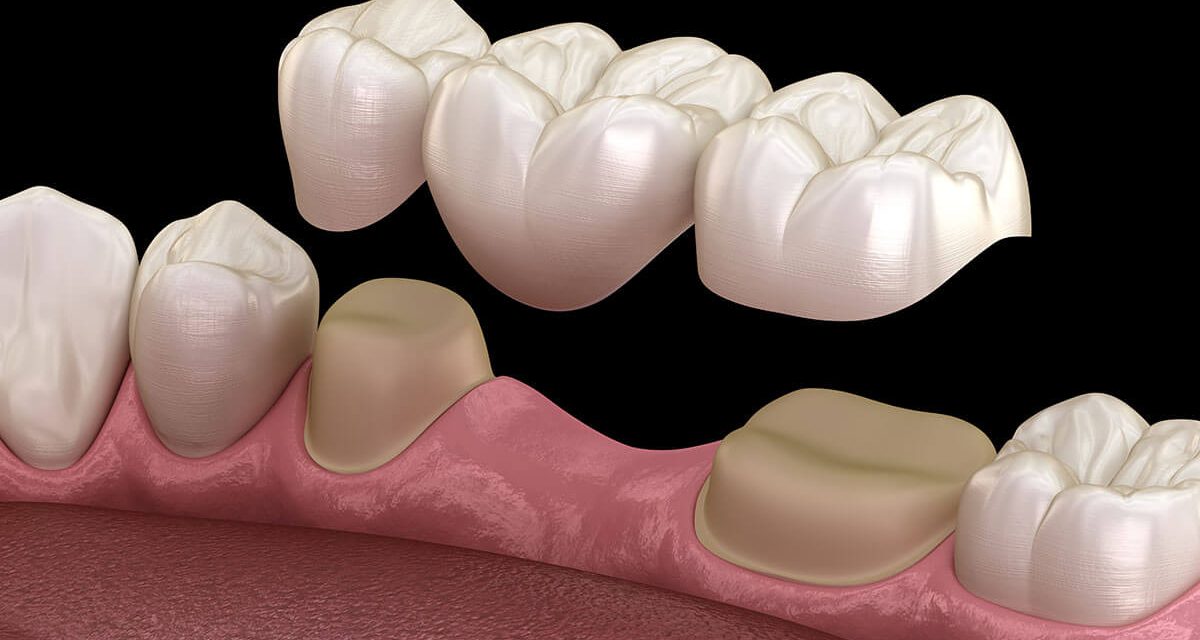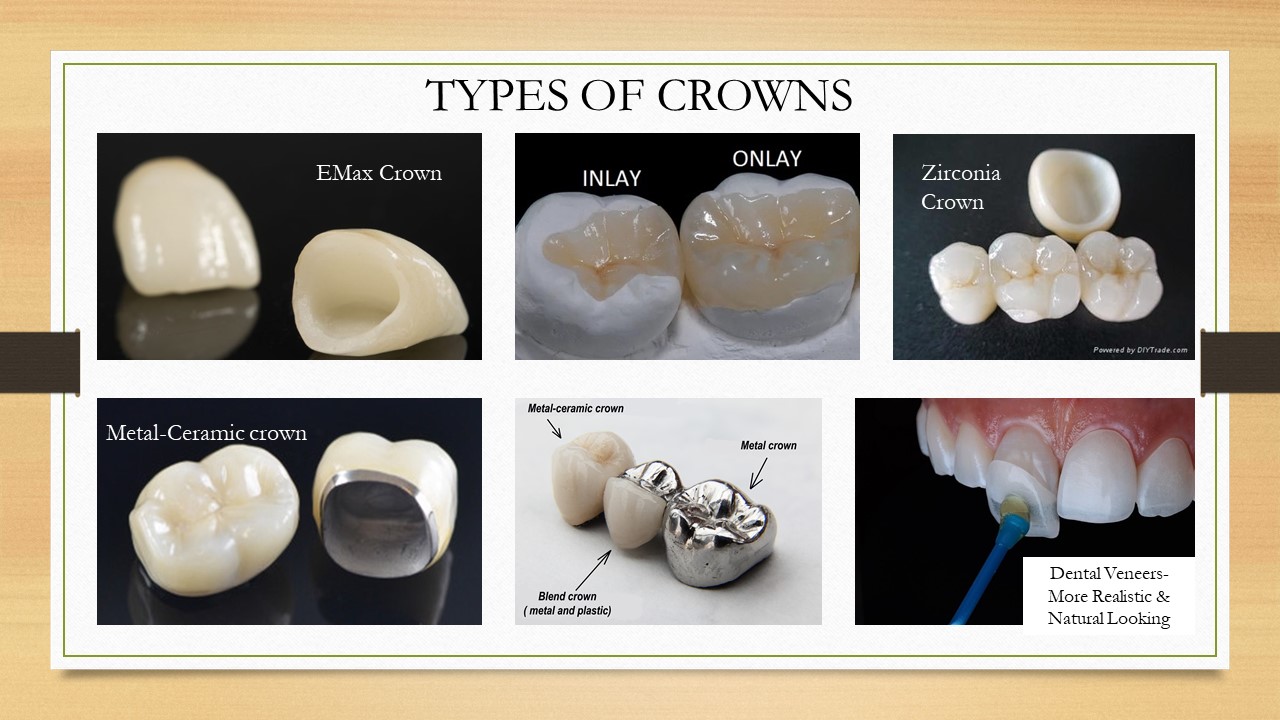
Crowns & Bridges


What is a crown?
A dental crown is a tooth-shaped "cap" that is placed over a tooth -- to cover the tooth to restore its shape and size, strength, and improve its appearance.The crowns, when cemented into place, fully encase the entire visible portion of a tooth that lies at and above the gum line.
Why Is a Dental Crown Needed?
A dental crown may be needed in the following situations:
What Types of Crowns Are Available?

Permanent crowns can be made from stainless steel, all metal (such as gold or another alloy), porcelain-fused-to-metal, all resin, ceramic or zirconia.
Stainless steel crowns are prefabricated crowns that are used for children to prevent decay of teeth, to protect large fillings and after root canals. When the primary tooth comes out to make room for the permanent tooth, the crown comes out naturally with it.
Metal crowns : Metals used in crowns include alloys that have a high content of base-metal alloys (for example, cobalt- chromium and nickel-chromium alloys). Metal crowns withstand biting and chewing forces well and probably last the longest in terms of wear down. Also, metal crowns rarely chip or break. The metallic colorand the risk of oxidation and corrosion because of saliva -is the main drawback. Metal crowns are a good choice for out-of-sight molars.
Porcelain-fused-to-metal dental crowns can be color matched to your adjacent teeth (unlike the metallic crowns). However, more wearing to the opposing teeth occurs with this crown type compared with metal or resin crowns. The crown's porcelain portion can also chip or break off. Second to all-ceramic crowns, porcelain-fused-to-metal crowns look most like normal teeth. However, sometimes the metal underlying the crown's porcelain can show through as a dark line, especially at the gum line and even more so if your gums recede. These crowns can be a good choice for front or back teeth as well as long bridges where the metal is needed for strength, if you have budget constraints.
All-ceramic or all-porcelain dental crowns provide better natural color match than any other crown type and may be more suitable for people with metal allergies. All-ceramic crowns can be used for front and back teeth. They are the best looking crowns which mimic natural teeth in aesthetics and function
Zirconia crowns : Crowns made using Zirconia are becoming extremely popular. Zirconia crowns are made from zirconium dioxide, a very durable type of metal that’s related to titanium, although it’s categorized as a type of ceramic crown.So they have the strength and durability of metal and the beauty of ceramic. This is the best choice for back teeth crowns and long span bridges.
What Steps Are Involved in Preparing a Tooth for a Crown?
Preparing a tooth for a crown usually requires two visits to the dentist -- the first step involves examining and preparing the tooth, the second visit involves placement of the permanent crown.
First visit: Examining and preparing the tooth
At the first visit in preparation for a crown, your dentist may take a few X-rays to check the roots of the tooth receiving the crown and surrounding bone. If the tooth has extensive decay or if there is a risk of infection or injury to the tooth's pulp, a root canal treatment may first be performed.
Before the process of making a crown begins, your dentist will anesthetize (numb) the tooth and the gum tissue around the tooth. Next, the tooth receiving the crown is reshaped along the chewing surface and sides to make room for the crown. The amount removed depends on the type of crown used. If, on the other hand, a large area of the tooth is missing (due to decay or damage), your dentist will use filling material to "build up" the tooth to support the crown.
After reshaping the tooth, your dentist typically will use a paste or putty to make an impression of the tooth to receive the crown. Sometimes, though, impressions are made with a digital scanner. Impressions of the teeth above and below the tooth to receive the dental crown will also be made to make sure that the crown will not affect your bite.
The impressions or scans are sent to a dental lab where the crown will be manufactured. The crown is usually returned to your dentist's office in two to three weeks. If the crown is made of PFM or Zirconia, your dentist will also select the shade that most closely matches the color of the neighboring teeth.
Second visit: Receiving the permanent dental crown
At the second visit, your dentist will check the fit and color of the permanent crown. If everything is acceptable the new crown is permanently cemented in place.
How Long Do Dental Crowns Last?
On average, dental crowns last between five and 15 years. The life span of a crown depends on the amount of "wear and tear" the crown is exposed to, how well you follow good oral hygiene practices, and your personal mouth-related habits (you should avoid such habits as grinding or clenching your teeth, chewing ice, biting fingernails, and using your teeth to open packaging).
Does a Crowned Tooth Require Special Care?
While a crowned tooth does not require any special care, remember that simply because a tooth is crowned does not mean the tooth is protected from decay or gum disease. Therefore, continue to follow good oral hygiene practices, including brushing your teeth at least twice a day, flossing daily -- especially around the crown area where the gum meets the tooth and regular dental follow-ups.
How Much Do Crowns Cost?
Costs of crowns vary depending on what part of the country you live in and on the type of crown selected (porcelain versus gold, for example). Generally, crowns can range in cost from Rs3000 to Rs12000 or more per crown.
